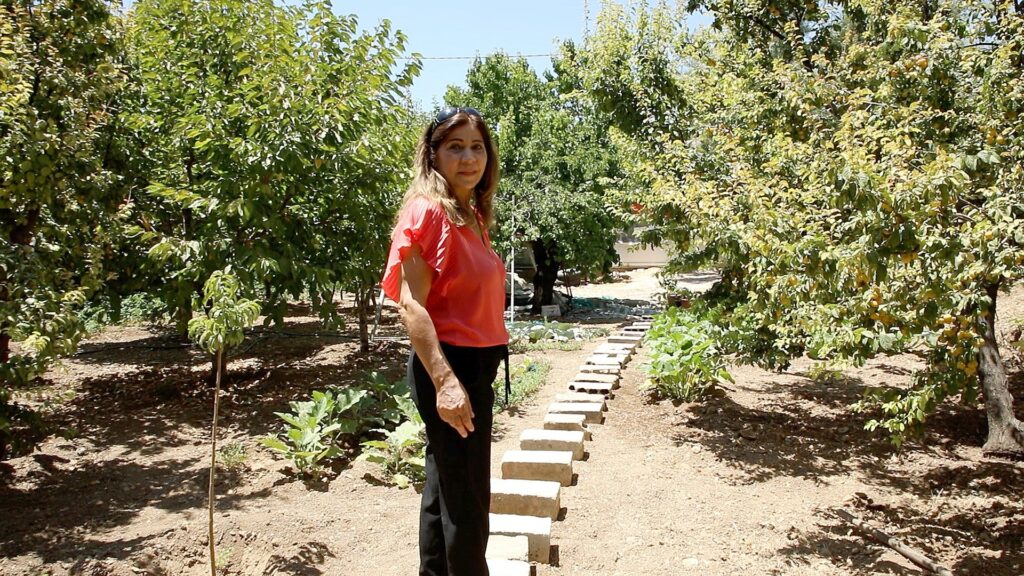Eddie Abou Hanna, 55, lives in Zahle, the hometown of her ancestors and the largest city of the Beqaa governorate in Lebanon. Zahle, also known as the “Bride of the Beqaa,” is famous for its beautiful landscape defined by red-roofed single-story buildings resting on a foothill.
Zahle is also known for the abundant Berdawni river that cuts through its historical downtown. People in Zahle take pride in tracing their roots from a city not only known for its breathtaking landscape but also for its well-developed agricultural sector, which has encouraged families to stay in Zahle for several generations.

Over the past decade, Zahle has witnessed changes that have sparked growing concerns among its inhabitants. Chief among these concerns is water scarcity, now disrupting the daily routines of residents, particularly for larger families.
“With a shortage of water supply, it becomes hard for bigger families to manage their day-to-day activities […]. I am worried about the life that my nieces and nephews will have amid these challenges,” Eddie says. “When I was a child, there was an abundance of water. I never heard adults sharing concerns about water scarcity. Today, however, all farmers need to take turns to irrigate their lands due to limited water supply.”
In Lebanon, growing greenhouse gas emissions and challenges in water quantity and quality have been coupled with multiple crises and a high influx of displaced people, particularly to underserved areas. This has caused many Lebanese cities to face critical water shortages or be completely deprived from safe water supplies.

A 2021 assessment by UNICEF revealed that more than 70 per cent of people were living with “highly critical” and “critical” levels of water vulnerability. Nearly 1.7 million people had access to just 35 litres of water a day, compared with the national average of 165 litres prior to 2020 – a nearly 80 per cent drop.
To increase the resilience of families like Abou Hanna’s in Zahle to climate change-related water challenges, UN-Habitat, in partnership with the United Nations Economic and Social Commission for Western Asia (UN ESCWA), the United Nations Children’s Fund in Lebanon (UNICEF), and national executing partners in Jordan and Lebanon, is promoting the use of unconventional water sources and supporting the sustainable management of water resources – implementing projects that increase the availability of such sources.
The intervention is UN-Habitat’s first in the region tackling water-related climate change impacts. In Zahle, it supports households and farmers to adapt to water scarcity by promoting urban planning that incorporates climate change consideration; it also promotes the reuse of treated wastewater and grey water in irrigation, promotes the collection of rainwater, and encourages water-efficient irrigation methods. Ultimately, the intervention seeks to decrease pressure on water from natural sources, such as ground and river water.
“Water scarcity has been a reminder for me to live responsibly on earth out of care for the children who surround me, my nieces and nephews, with whom I want to stay in Zahle and enjoy its rich resources,” Eddie says. “The first step toward decreasing the level of water scarcity is limiting the amount of wasted water at home; second, the water infrastructure in Zahle should be improved because our district is relatively rich in water resources but needs improved and sustainable management.”
Across the Arab region – one of the most water scarce regions in the world – UN-Habitat is implementing more than 12 projects to address climate change impacts, aiming to build urban adaptation and climate resilience in hotspots of vulnerability as well as mainstream climate considerations into local and national urban policies and plans.
The project “Resilient Water Solutions against Climate Change in Jordan and Lebanon” is funded by the Adaptation Fund and extends over four years between 2021 and 2025.
This article was originally published by UN-HABITAT. Read the original article here.


